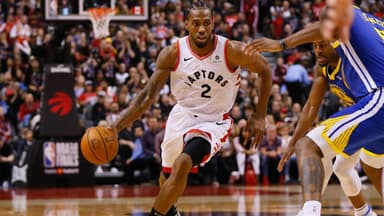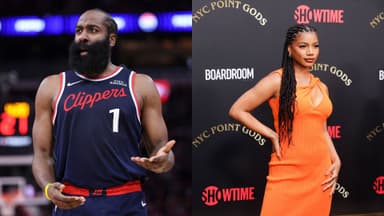Yesterday’s bombshell report about the LA Clippers allegedly skirting the NBA’s salary cap by paying Kawhi Leonard $28 million for a ‘no-show job’ seems to have sprayed mud in every which direction it could have. Some people have begun taking sides, and many have already assumed guilt, asserting Leonard’s career was done. Others have pointed the finger squarely in the direction of team owner, Steve Ballmer, noting that the billionaire had done this before.
Advertisement
According to Pablo Torre, Leonard had agreed to a $28 million endorsement deal in 2022 through his LLC, KL2 Aspire, with the now-bankrupt Aspiration, which Ballmer had invested in.
While that may sound normal, a second glance will reveal that the deal came 9 months after the forward had already signed a $176.3 million contract. Under the NBA’s collective bargaining agreement, this was already the maximum limit!
The new deal was on the condition that Leonard doesn’t leave the Clippers, which is being reported as a way to get around the salary cap. The Clippers, however, have squarely denied Torre’s allegations. Meanwhile, NBA insider Bobby Marks claims that even if Ballmer was involved, proving his association would be a really difficult task for the authorities.
Marks claims that there is probably some truth to all of this and asserts that the Clippers will admit to that as well. With the NBA already aware of the allegations and investigating them, Marks tried to explain how the process will work out in real time.
“The league will hire an outside law firm. The law firm, if you are being investigated by the Department of Justice or the FBI, or the government, they will come in and basically seize all your electronics. They will do a forensic test, a forensic investigation as far as the paper trail. They will look at all your finances,” Marks noted.
Having been through this himself before, Marks revealed that the investigation generally lasts for about a month or so, but this one in particular could be much longer.
“The Clippers have been investigated so many times for Kawhi Leonard that they probably have the records from the last time they went through,” he joked, adding that this has been a recurring theme since they signed him back in 2019. He also revealed that players signing a marketing deal with one of their sponsors, on top of their usual contracts, isn’t exactly out of the ordinary.
So, where exactly is the problem? “Because the Clippers had invested money, they are saying that the money that was invested basically went into Kawhi Leonard’s pocket,” Marks continued.
“The optics don’t look good. If you are an owner, who’s basically put money into a start up company, then you have a player who gets a marketing deal at $7 million per year, which is a huge number and there’s no trace of him doing any public appearances or any work,” he added, noting that there was a huge ‘however’ to consider.
Marks explained that the optics and what the league finds after an investigation could be two completely different things altogether. “Unless there is a paper trail, and a paper trail doesn’t consist of 7 former works who are masked behind one of those devices that disguises your voice. That doesn’t count.”
He also added that an interview where people make accusations also doesn’t count as evidence of any wrongdoing. “You are going to need to show the paper trail of evidence … the money that Steve Ballmer paid for this start up company … which is now under criminal investigation … the money that Steve Ballmer invested in this company went into Kawhi Leonard’s pocket directly.”
This basically means that the investigative authorities will need to find a cheque or a wire issued by Ballmer that Leonard directly received, which Marks believes will be “extremely extremely extremely difficult to do.”
“And second, the Clippers are not dumb,” Marks added, noting that they will have learned from the Joe Smith situation from the 2000s. They will have taken care of the paper trail. He noted that while he would like to wait and see, he’s not holding his breath.
One can argue that the court of public opinion would make a difference, but then again, the public does have a notoriously short memory.







